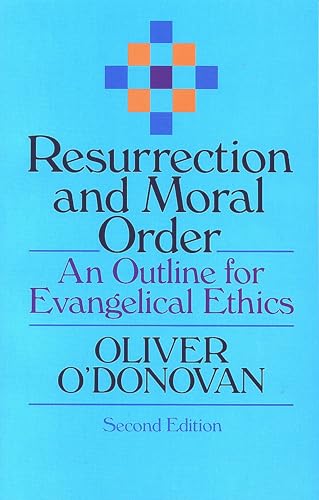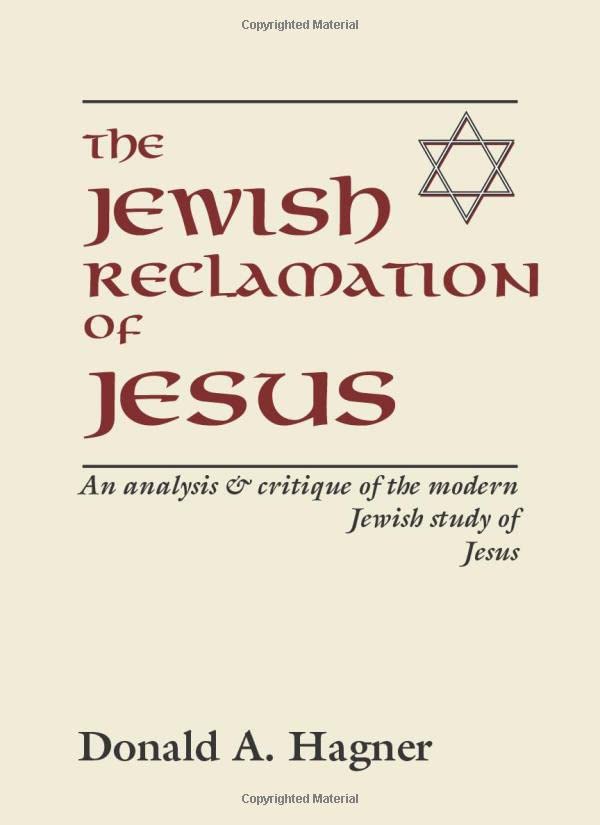Volume 12 - Issue 3
Work, faith and freedom
By John W. GladwinHardly a week seems to pass without a new book or article appearing from Christians about the subject of work in an age of unemployment. It was Hitler’s concentration camps which displayed slogans proclaiming the virtues of work as the way to freedom. Christians believe that faith in Christ opens the door to liberty: so why all this concern about work and employment? Is not work a curse and a means of oppression? Should we not rejoice that the old traditional exploitative labour is collapsing—is this not a day of opportunity if we care to grasp it?
There are many pitfalls in this subject and Christians need to tread with caution. I can remember twenty years ago being told that working people looked forward to the day when some of the unpleasant, back-breaking, dirty tasks would be lifted from the lives of labouring people. Miners did not want their children condemned to dig coal under the ground. Now in an age of the fear and reality of unemployment every job is protected. Better to dig coal from under the ground than to have no job at all. It would appear that we have regressed.
There has been a massive shake-out and shift in the whole experience of work and employment throughout the world over the past fifteen years. These changes have their roots deep in history. The British experience of this goes back to the last quarter of the nineteenth century. The changes of more recent times, however, are very real for those directly affected by them. Manufacturing industry has been shaken in two ways. There has been a collapse of some manufacturing industries and there has been a technological revolution. Both have hit traditional patterns of employment. Millions of jobs which once were filled by the semi-skilled have gone. For regions heavily dependent on such industrial work the results have been dramatic. In Britain the West Midlands is probably the most striking region in this respect. From being the engine-room of Britain’s engineering and industrial life, it has become one of the worst regions for unemployment and industrial collapse. Patterns which have become established in the developed world will lead to pressure on the developing world to tread the same path.
At one and the same time other forms of work and employment have been developing. The post-1945 period has seen a significant development in the employment of women. Efforts have been made, not always with great success, to protect women from exploitative practices based on the assumption that employment is essentially a male prerogative. Nevertheless, women expect to be able to find work and develop vocations.
As manufacturing industries have declined, other forms of employment have grown. Service industry work has been on the increase. Some of this is part-time and short-lived. More flexibility, insecurity and mobility have been introduced into patterns of employment.
Patterns of work and employment are among the basic factors which create community. The collapse of inherited patterns can have devastating effects on communities (witness the effect on people when traditional rural communities are suddenly invaded by industrial society). Other things get tested out in the ensuing uncertainty and instability. Marriages become vulnerable, home life is under threat, people suffer stress and lose a sense of identity. The established patterns on which many depend for the shape to their living are thrown into a measure of confusion. The changes may be necessary, even unavoidable; they are not, however, without cost. The costs are frequently borne by those sections of society least well equipped to pay them.
What are we Christians to say to all this? Frankly, it has to be said (and witness the vast pile of literature on the subject)1 that we struggle to find a clear word from God. Confusion has hit us as well. The church has not been exempt from the fallout from this period of change. Is there anything in our struggle with these matters to help others who struggle with them?
We should remind ourselves of some basic Christian values:
-
Work and Christian liberty (see especially Rom. 4)
One of the crucial truths of the gospel is that it is God who justifies us in Christ. It is God’s work rather than ours which establishes the foundations and the environment of human freedom. Yet so often in human experience we are lured into believing that it is our work which is critical. We have to justify ourselves by our work. We even describe people according to their work. ‘What do you do?’ is a first question in many a new conversation. Such is, of course, terribly debilitating for all who are not in some form of paid or professional employment. It has been a particular put-down to the unemployed and to women: ‘Oh, I’m just a housewife.’ Once we accept the temptation to see things in terms of our work we lock ourselves into a form of oppression in the world of work. We have to justify ourselves and achieve what is required of us by others. Work, however, is not the way to freedom. Liberation is a gift of God to the world in Jesus Christ discovered in the moment of faith. Our work must therefore be seen in the light of freedom, not as a means to it (Gal. 3:1–5). Yet Christians and the churches can be the worst offenders at colluding with this oppressive doctrine that we are justified by our work.
-
Work and vocation
If work is to be seen in the context of Christian liberty we can begin to appreciate the original positive understanding of it given in creation. Work need not be oppressive. Indeed, since the world is God’s creation and the object of God’s continued love and care, work has to be seen as a gift of God and a possible opportunity for vocation (Gn. 2:4–15). God calls us to action. The garden needs tilling, the city needs building, the wealth of creation needs husbanding to assist in proclaiming the worth of the God who calls us to freedom. For those therefore who see the liberty God gives in Jesus Christ, it is a shame and disgrace to find that some are not able to share in proclaiming God’s worth through their activities. The deliberate prevention of people from discovering vocation and offering their worship to God through such calling is an affront to Jesus Christ. That sort of unemployment which shuts people out of society is a disaster in the light of the message of freedom offered in Jesus Christ.
-
Labour and toil (Gn. 3:16–24)
So too is the sort of work which destroys people in the process. Work which undermines people’s humanity, exploits their gifts, and destroys their lives and their communities is offensive in the face of what we see in Jesus Christ. Work which proclaims God’s liberty must affirm human dignity, nurture rather than destroy human creativity, enhance rather than inhibit society and community. The Bible demonstrates that in a fallen world which does not know the redemptive love of God work can collapse into toil. That which could proclaim the liberty God offers becomes a means of oppression and injustice.
-
Idleness and the soul (Pr. 24:27–34; 26:14–16)
Worship is always a balance between activity and reflection. It has moments of joyful movement and moments of quiet and peace. The actual worship offered to God by the church is a sign and symbol of the way all life is called to be in the light of Jesus Christ. God calls us to proclaim the liberty he offers in the glory of activity and the wonder of rest. Work and rest together make life into worship of God. This dialectic of experience is the way to the enrichment of the freedom we experience in Jesus Christ. The life of the soul is furthered when the pattern of social life reflects the inner mystery of the gospel of Jesus Christ. It is therefore tragic when this creative balance of work and rest topples over into the disastrous duet of toil and idleness. Human life, instead of being enhanced and moved forward on its journey of work and rest, is torn apart and led into despair by the deathly choice between toil and idleness. If the choice is between breaking one’s back in exploitative labour or living outside society in the idleness of enforced unemployment, then how are we able to demonstrate the meaning of God’s offer of liberty? It is small wonder the church struggles with environments which are predominantly about toil and labour or about idleness and unemployment. If it is true to Jesus Christ it is bound to be seen as carrying a message which threatens the whole basis of the corrupted social order which has created this toil and unemployment. If it colludes with it it becomes part of the grey and uninviting scenery of a world gone badly wrong.
What next?
It is clear for any who believe in God’s reign in our history that we cannot go backwards. We cannot return to the past. There is no going back to the old patterns of employment and, indeed, there are many who would not wish to return that way. The more mobile, less certain and more open pattern of working life is upon us. The challenge concerns whether we see such change as an opportunity to enhance the life chances of the members of our society or as the gateway to a new oppression. If work in its new form becomes an end, a means of justification, it will tear us apart as certainly in the future as it has done in the past. If it is put into the proportion implied in the Christian experience of God’s gift to us in the work of Jesus Christ, it might yet be able to open the way to new creativities and to the chance for it, at least in a measure, becoming a means of worship and service. Government, employers, financial institutions, Trades Unions and all corporate institutions concerned with the future of work and employment need to collaborate with this purpose in mind. Our futures may depend on it.
1 Recent literature on the subject includes: Roger Clarke, Work in Crisis (St Andrews, 1982); David Bleakley, Work—the Shadow and the Substance (SCM, 1983); David Bleakley, In Place of Work … The Sufficient Society (SCM, 1981); Howard Davis and David Gosling, Making Unemployment Work (WCC, 1985); P. Elsam and D. Porter, 4,000,000 Reasons to Care (Marc, 1986); John Brockett, No Free Lunches (Churchman Publishing, 1986); P. Mayhew, Unemployment under the Judgement of God (Churchman Publishing, 1985); Coal, Church, Community (Easington District Council, 1986); Ann Warren, Living with Unemployment (Hodder, 1986).
John W. Gladwin
John W. Gladwin is Secretary of the Church of England’s Board for Social Responsibility, and is also Associate Editor of Themelios in Social Ethics.






